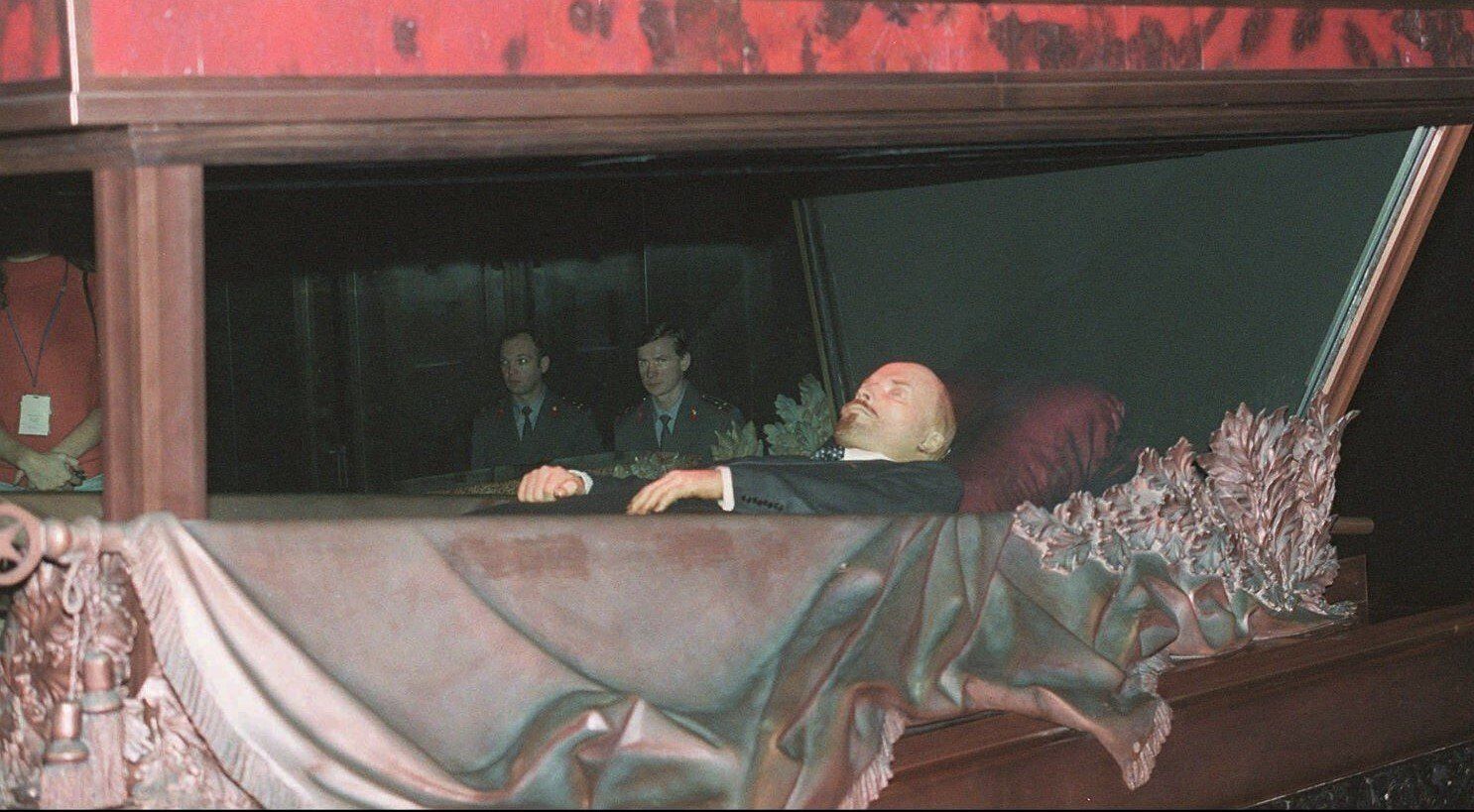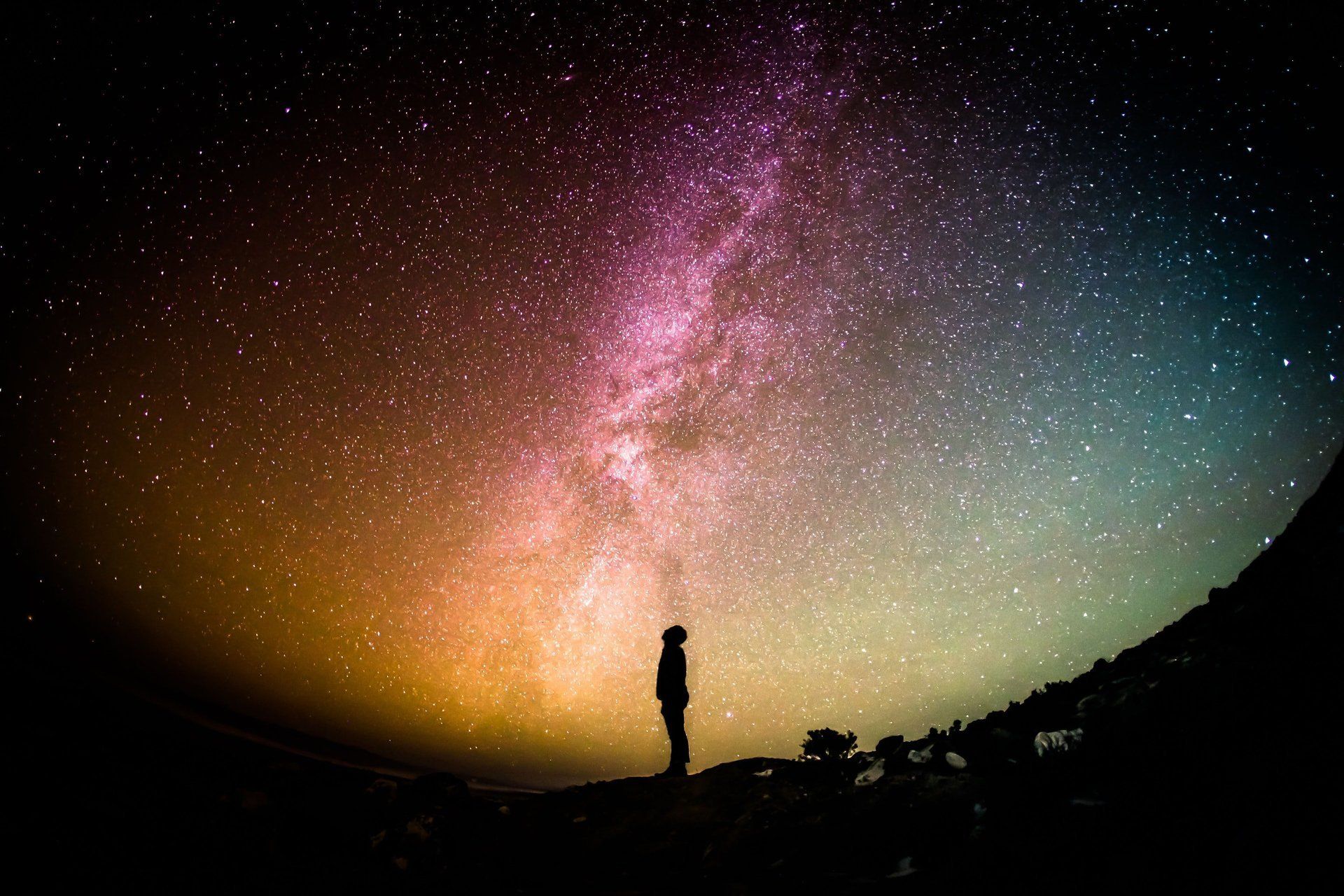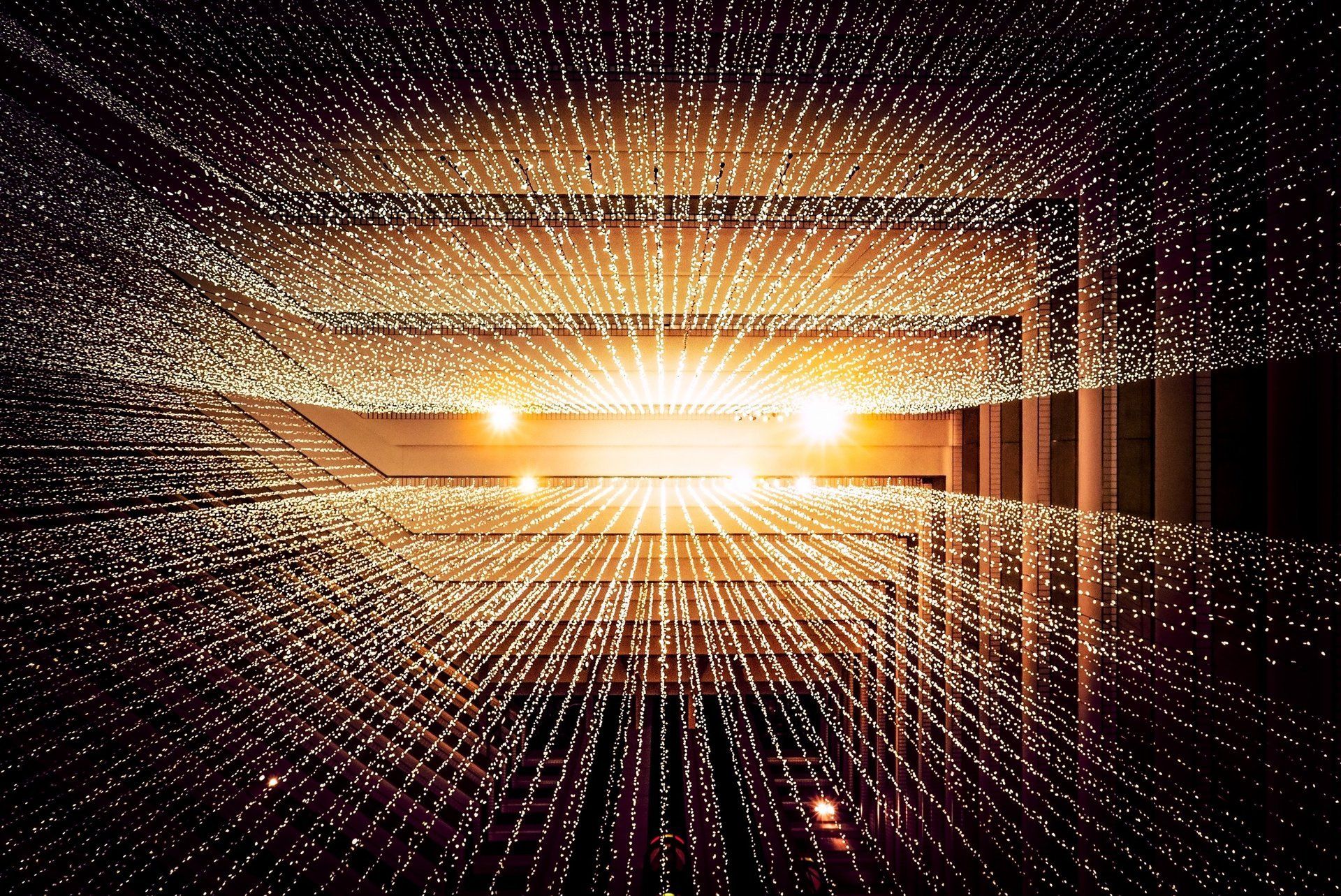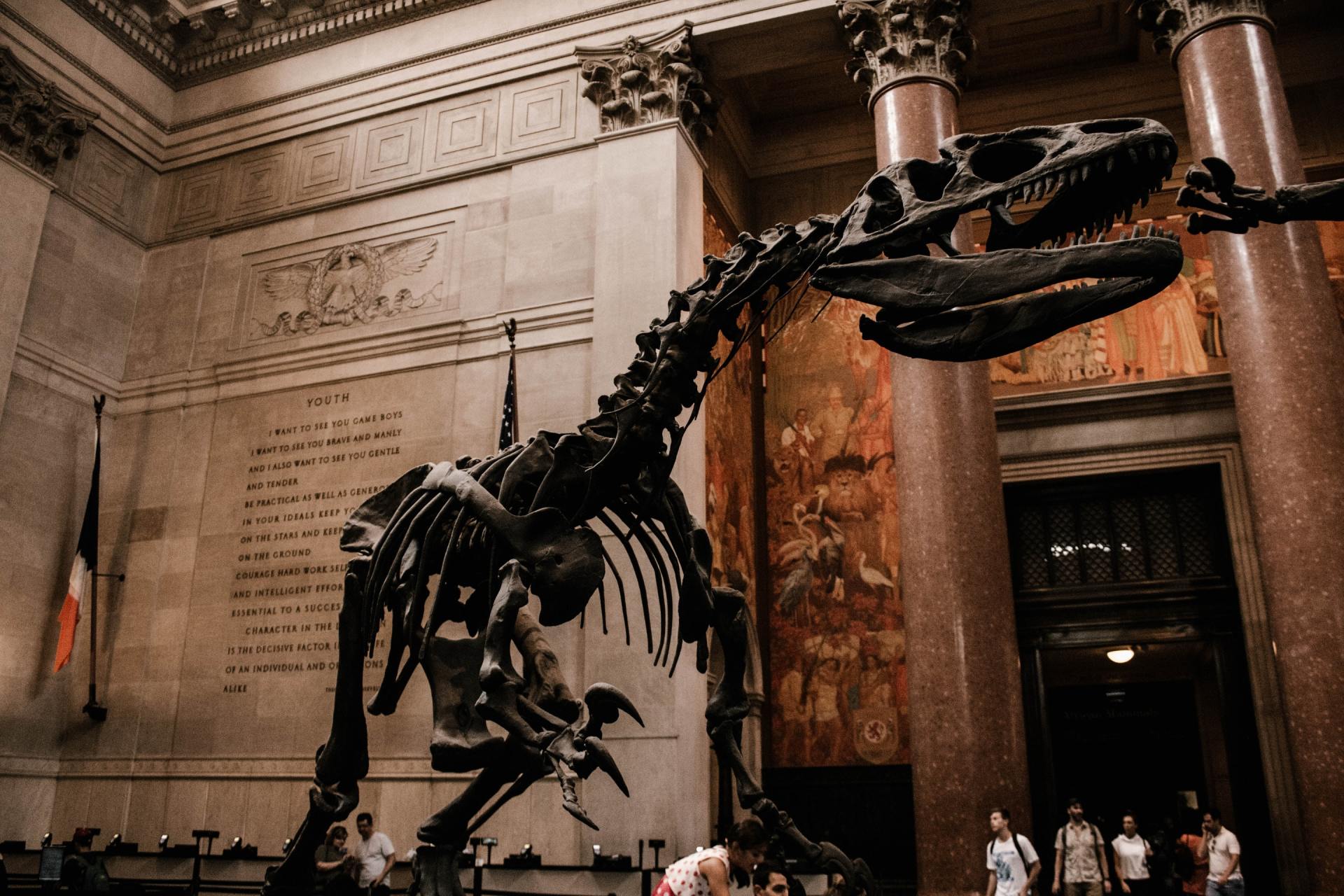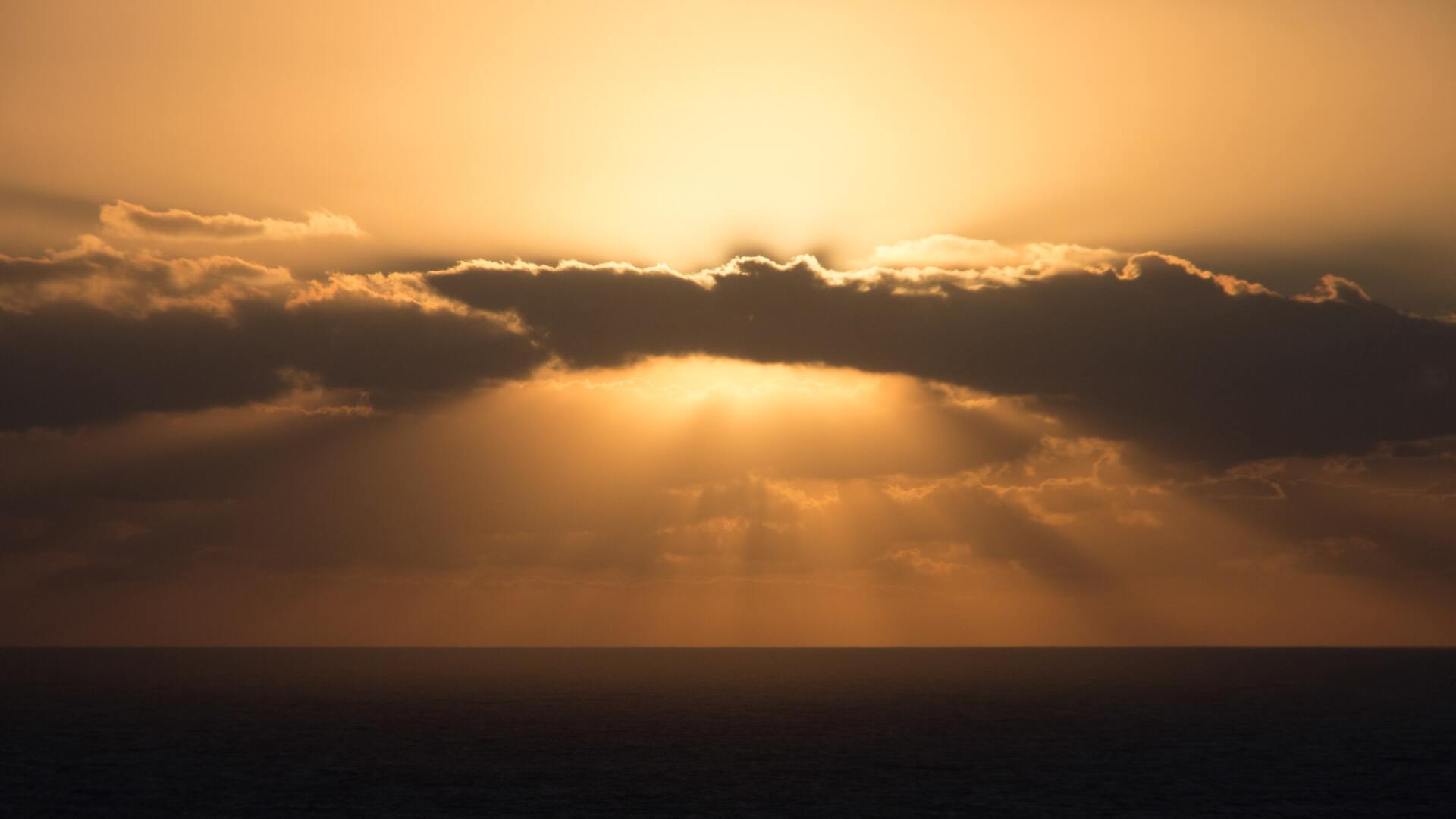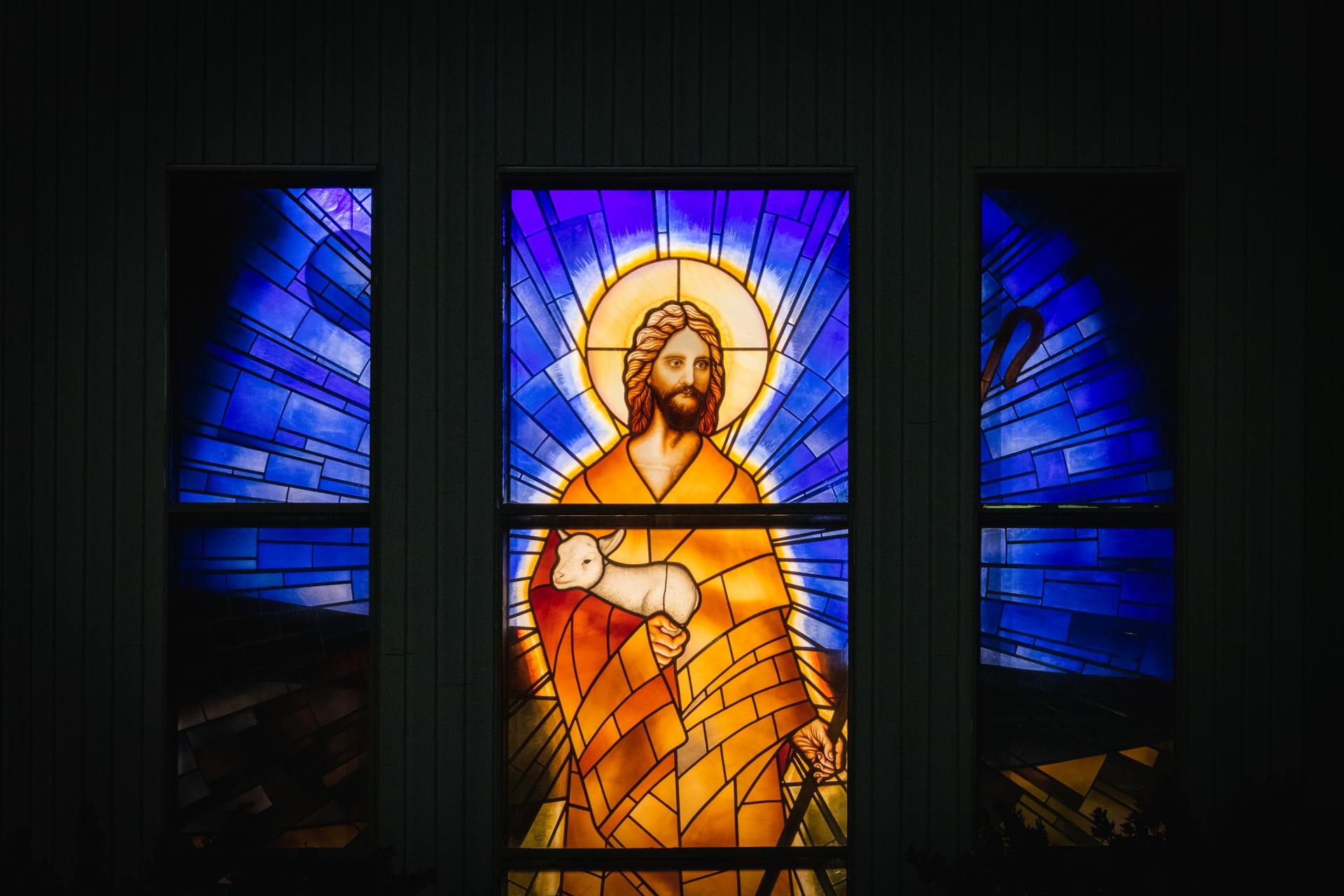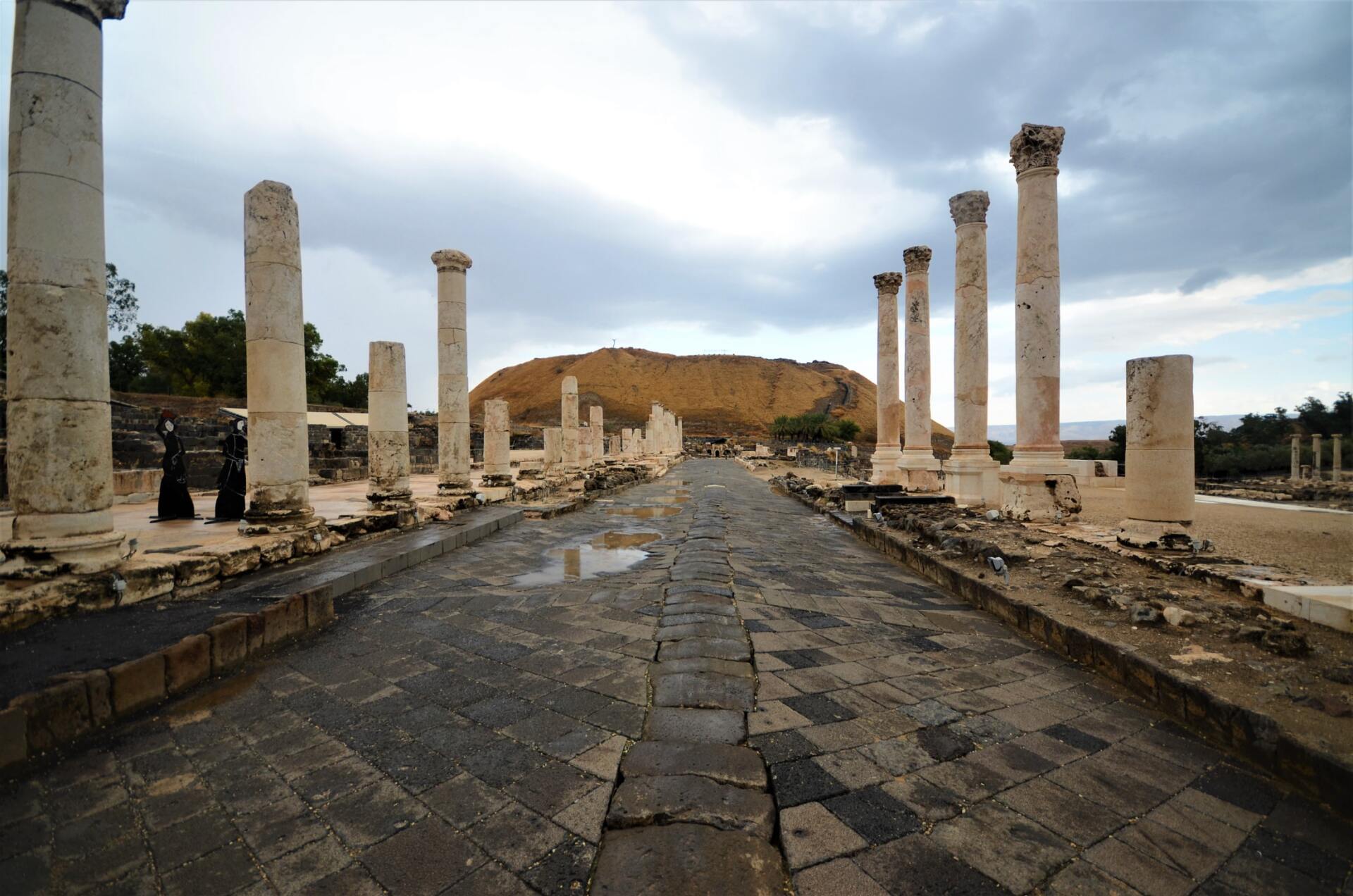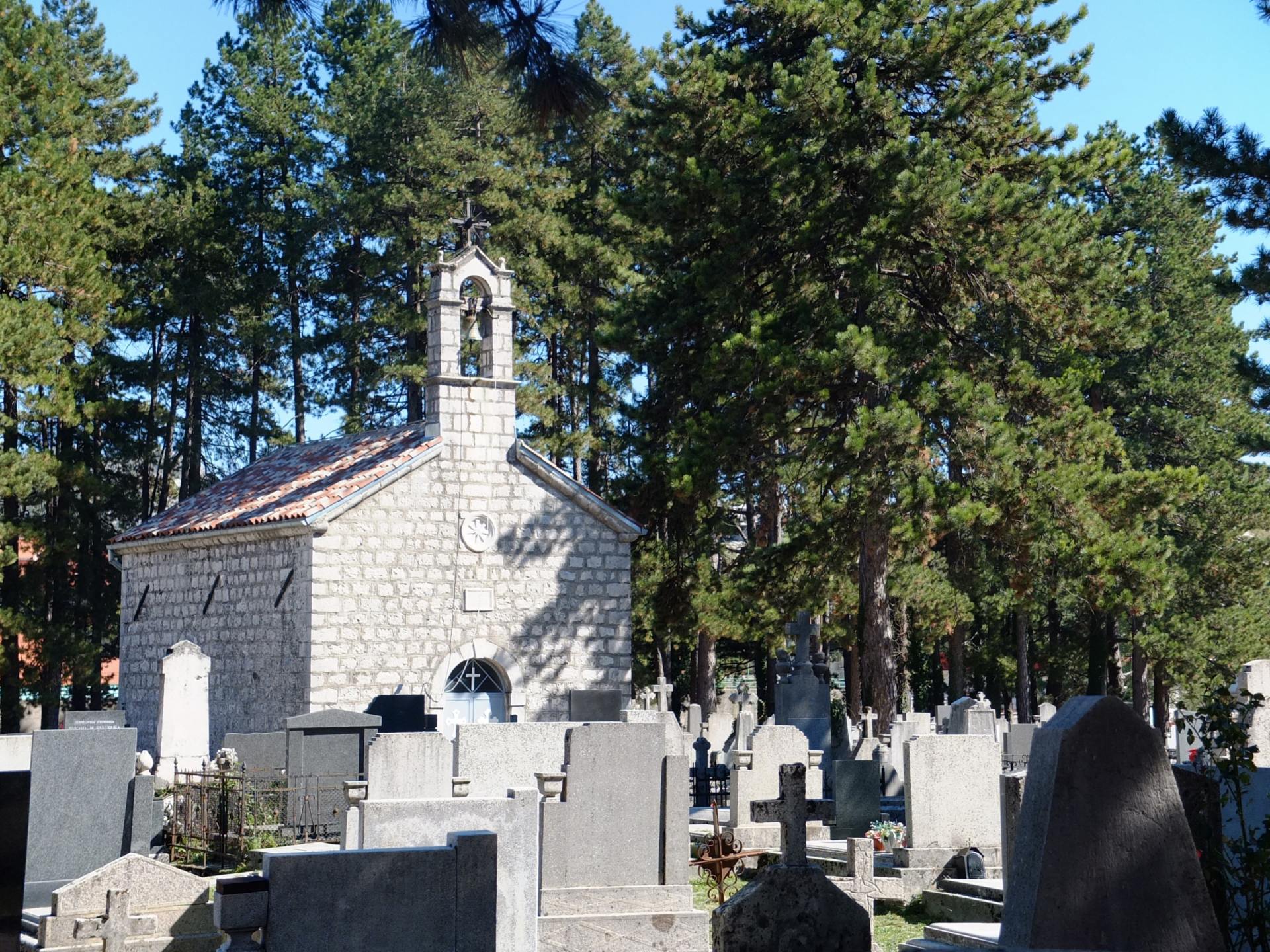Geneses
Though God is not in science’s purview or vocabulary, science can lead us to God. The Big Bang, everything from nothing; the subsequent order and maintenance of the universe; and life and its evolution all prove God.
A bit of science distances one from God, but much science nears one to Him.
--Louis Pasteur
By the Lord's word the heavens were made. For he spoke, and it came to be.
--Psalm 33:6a, 9a
Belgian Jesuit Fr. Georges Lemaître was the first to propose the Big Bang theory. Einstein didn't believe it (at first). Cosmologist Sir Fred Hoyle pejoratively named it the Big Bang. Until 1927, scientists thought matter always existed, Hoyle's Steady-state theory. The easy way out. I bought an astrophysics text from 1930 with an addendum saying the universe may have a beginning and be expanding, but we’re not yet sure.
For if 13.8 billion years ago, the still-expanding, 93-billion-lightyear-wide universe exploded from a single point billions of times smaller than a proton! which it did, then scientists have a problem not acknowledging that an independent force outside the universe, outside time and space because they did not yet exist--also known as God--created the universe. What Is the Big Bang Theory? diameter of the universe
And this infinitesimal point, an infinitely dense "singularity," contained all the matter in the universe (Stephen Hawking, A Brief History of Time, New York: Bantam Books, 1988, p.49). The reason science cannot go back any further is because before the singularity was nothing. Science can't study "nothing," no time and no space.
Everything from nothing is Creation. To say that everything, two trillion galaxies averaging 100 billion stars each, came from nothing--on its own--is preposterous. God made the Big Bang go bang. Because God is beyond the scope of science, some scientists just dismiss God, despite compelling evidence to the contrary. They're too smart for God. Instead of being the smartest guys in the room, they have to be the smartest guys in the universe. At least they're honest about their discoveries.
Philosophers (good ones) always knew the universe had a beginning, i.e., came from nothing. For if the universe always existed, then it goes back an infinite amount of time. However, if the universe goes back forever, it could never reach the present, which it's obviously reached, as an infinite journey can be made only in an infinite amount of time.
The bible considers the earth the center of the universe, which it is. Who cares what’s going on in the geographical center of the universe? We are the center. There is no center anyway, as it’s expanding—faster than the speed of light! I know, Albert, I know. There have been some updates. Turns out light's special relativity speed limit is not universal, only local.
How Can the Universe Expand Faster Than the Speed of Light?
When criticized about the bible making the earth the center of the solar system, Rabbi Menachem Schneerson smartly replied that in Einstein's general relativity theory, "The earth goes around the sun, but the sun also goes around the earth." The bible tells us how to go to heaven, not how the heavens go; it's not a science book.
Genesis is an allegory, a symbolic narrative, for "the Lord God was walking about in the garden" (Gen 3:8). God has no feet pre-Incarnation. Genesis, though, does reveal deep spiritual truths about Creation, the Fall, and the devil (Catechism of the Catholic Church 390-400). The bible was right, and science had been wrong until Fr. Lemaître's Big Bang theory, that everything exploded from nothing--Creation.
Written four thousand years before Darwin and Hubble, Genesis is fairly accurate in its sequence of the origin of humanity. First the stars, “Let there be light” (Gen 1:3). Then the sun, night and day (5). Next is the ocean and land (9). Vegetation follows (11). The first creatures begin in the sea (20). Later, the land animals emerge (24). And finally, humans appear (26). It took six days, and God rested on the seventh (Gen 2:2) because he’s a good Jew, keeping holy the Sabbath. The six days are symbolic. "With the Lord, one day is like a thousand years" (2 Pt 3:8), or a couple of billion. After all, Catholics are not Fundamentalists.
But could there be other rational beings in the vast universe? Did the Son assume their nature too? Are we the only center? Who am I to limit God’s creative powers? Are there countless Geneses? Or are we alone? Whether the universe is teeming with rational, diverse creatures, or if it's just us, either possibility is staggering.
Scientists now say MILLIONS of planets could be teeming with life
From the Sept. 23, 2016 WSJ:
“In 2014, two Jesuit astronomers at the Vatican published a book with the title, ‘Would You Baptize an Extraterrestrial?’ That year, Pope Francis himself—during a hypothetical section of a weekly homily—said that he would baptize a green Martian with a ‘long nose and big ears,’ although only if the alien ambled into St. Peter’s Basilica and asked. ‘Who are we to close doors?’ the pontiff asked.”
Christ In the Universe
Alice Meynell (1847-1922)
With this ambiguous earth
His dealings have been told us. These abide:
The signal to a maid, the human birth,
The lesson, and the young Man crucified.
But not a star of all
The innumerable host of stars has heard
How He administered this terrestrial ball.
Our race have kept their Lord’s entrusted Word.
Of His earth-visiting feet
None knows the secret, cherished, perilous,
The terrible, shamefast, frightened, whispered, sweet,
Heart-shattering secret of His way with us.
No planet knows that this
Our wayside planet, carrying land and wave,
Love and life multiplied, and pain and bliss,
Bears, as chief treasure, one forsaken grave.
Nor, in our little day,
May His devices with the heavens be guessed,
His pilgrimage to thread the Milky Way
Or His bestowals there be manifest.
But in the eternities,
Doubtless we shall compare together, hear
A million alien Gospels, in what guise
He trod the Pleiades, the Lyre, the Bear.
O, be prepared, my soul!
To read the inconceivable, to scan
The myriad forms of God those stars unroll
When, in our turn, we show to them a Man.



